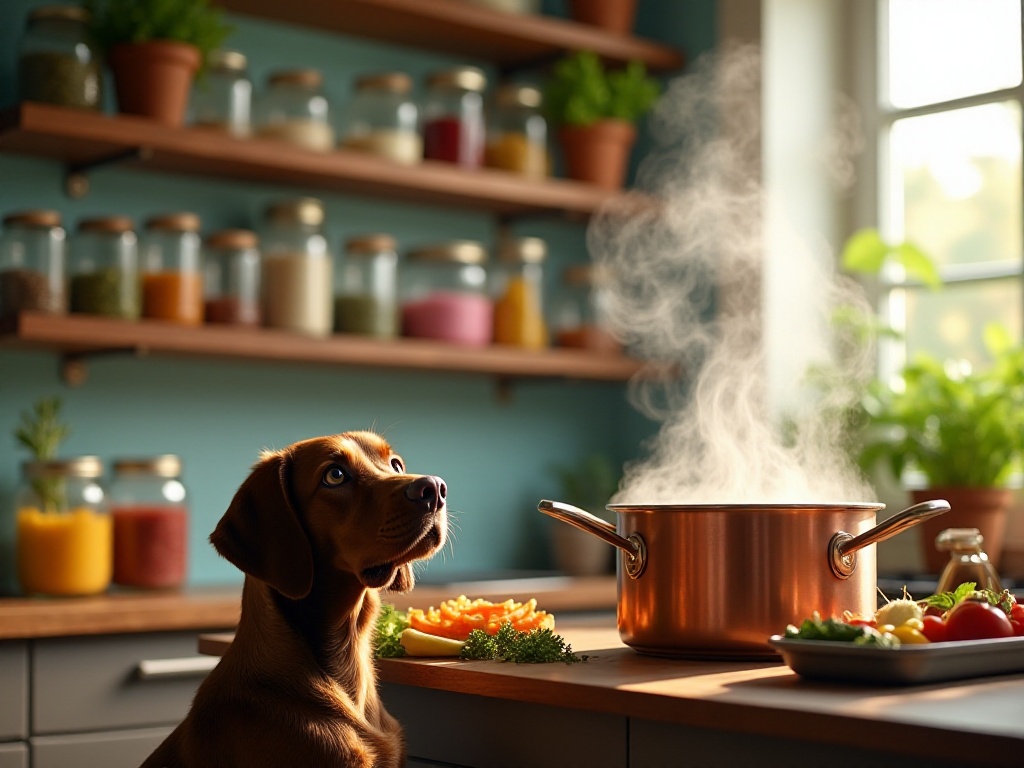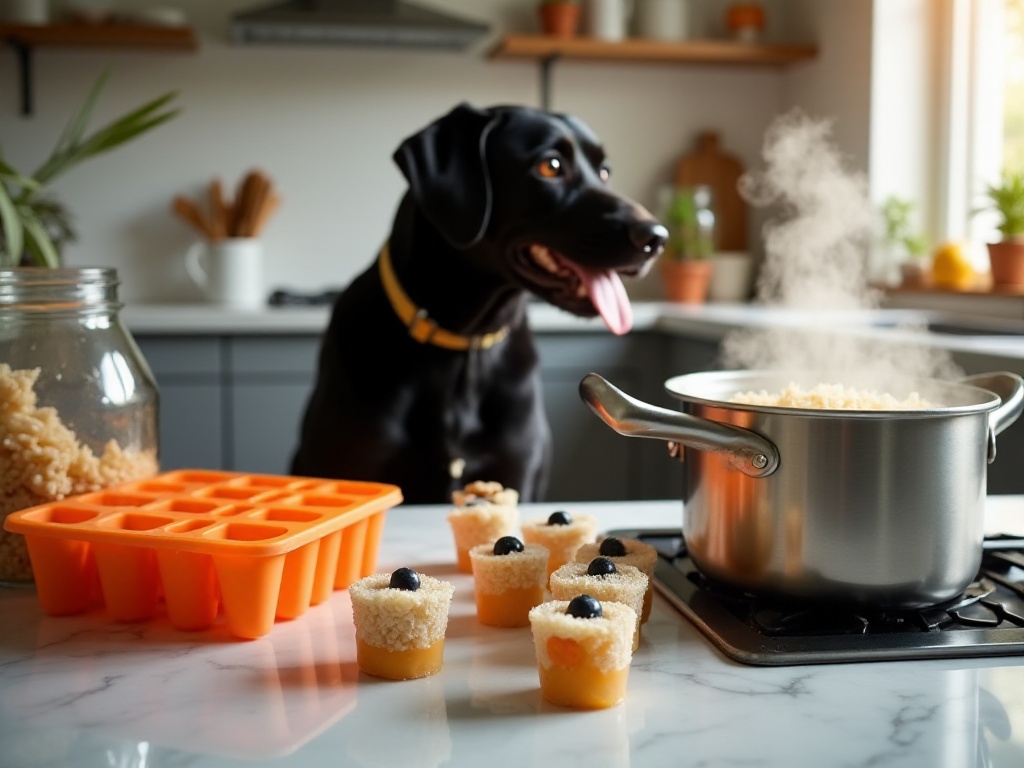Introduction
Have you been seeing your social media flooded with adorable pet videos lately? Do those furry little creatures make your heart melt? As a veteran pet owner who started in college and is now an experienced "poop scooper," I completely understand that mix of excitement and anxiety when first getting a pet.
I remember when I first got my cat, watching it explore the house made me feel both delighted and worried. I was happy to finally have a companion but concerned about how to properly care for it. I used to wake up in the middle of the night just to check if it was okay. Looking back, that fumbling newbie period was quite endearing.
But things are different now. After years of hands-on experience, I've developed a complete set of pet care secrets. Today, I'll share all these experiences with you, hoping to help you avoid some common pitfalls and quickly become a competent pet parent.
Medical Care
To be honest, when I first started keeping pets, I was a pretty casual owner. Seeing my cat running around energetically every day, I didn't think there was much to worry about. Until one time, it suddenly lost its appetite, and only after taking it to the hospital did we discover it had mild kidney damage. That experience taught me a lesson: prevention is better than cure, and regular check-ups are a basic responsibility of pet ownership.
Now, I take my pets for comprehensive check-ups every spring and fall. Although each check-up costs quite a bit, knowing that problems can be detected early makes it worth it. Take my cat for example - last year's check-up revealed serious tartar buildup, and timely dental cleaning prevented potential periodontal disease.
Speaking of which, I must emphasize the importance of vaccinations. I know there's a lot of controversy about vaccines online, but as someone who has experienced pet illness, I must say: necessary vaccines must be given on time. I know a friend who didn't vaccinate their dog because they thought it was expensive, but the dog contracted distemper. The treatment cost far exceeded the vaccine cost, and they still couldn't save the little one's life.
Actually, many veterinary hospitals now offer annual check-up packages that include basic examinations, vaccinations, and other services at a better price than individual services. I suggest checking if your regular vet clinic offers such packages. Also, getting pet insurance is a good choice - there are increasingly more pet medical insurance products available now, and you can choose one that suits your needs.
For daily observation, I have a small tip to share. Weigh your pet morning and evening, and record it in your phone's notes. Weight changes are often early signs of many diseases, and through this method, I've caught several potential issues early on. Additionally, when brushing their fur daily, watch for any skin abnormalities like redness or hair loss.
Also, I recommend creating a health record for your pet, documenting check-up reports, vaccination records, medication history, and other information. I use a dedicated folder in my phone's notes to store this information for easy access when needed. This not only helps track your pet's health status but also helps different veterinarians better understand the medical history.
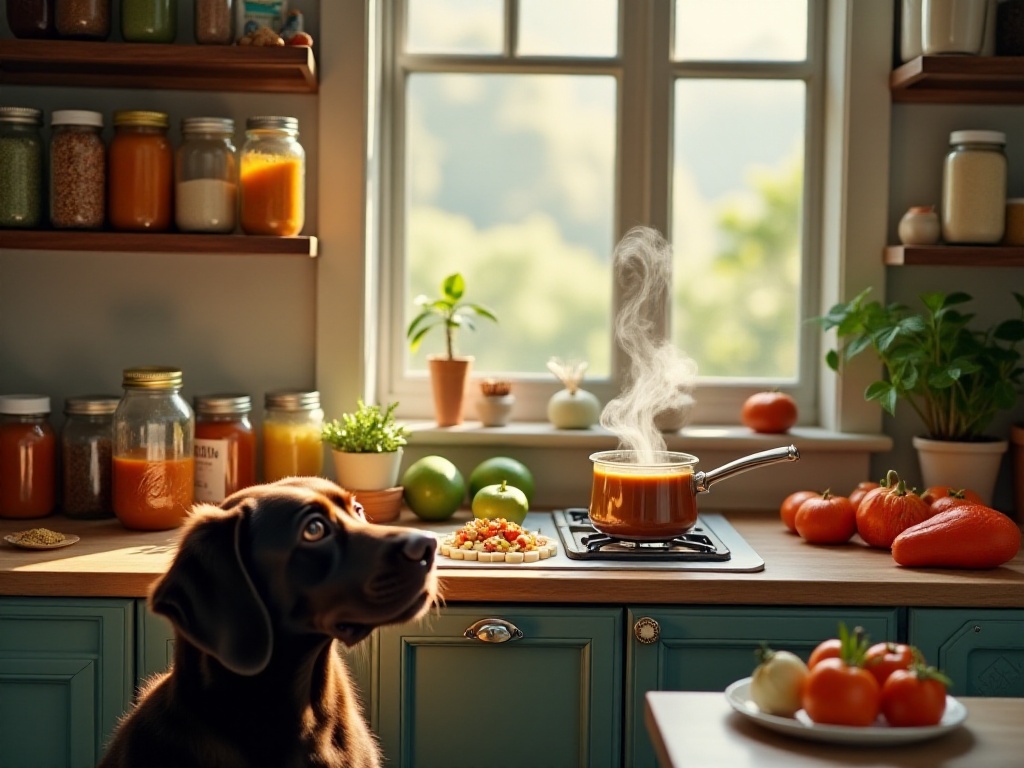
Nutrition
When it comes to food, it's really quite challenging. At first, I thought any brand of cat or dog food would do, until my cat developed digestive issues. That's when I started seriously studying pet nutrition.
There are so many pet food products on the market now - just cat food alone includes dry food, treats, canned food, and various nutritional formulas. Choosing can be quite difficult. After years of experience, I've compiled several practical shopping tips.
First, look at the ingredient list. Many people might not know that ingredients are listed by quantity from highest to lowest. So if the first three items are corn, wheat, or other grains rather than meat protein, the quality of that product is questionable. High-quality cat and dog food usually lists fresh meat or meat meal as the first ingredient.
Second, look for authoritative certifications. For example, AAFCO certification is currently one of the most authoritative pet food nutrition standards globally. Products with this certification at least guarantee nutritional balance.
Third, choose based on your pet's specific situation. For instance, my cat tends to gain weight easily, so I choose formulas with relatively lower calories. Also, pets at different ages have different nutritional needs - younger ones need more protein and energy for growth, while older ones need more easily digestible food.
For daily feeding, having a regular schedule and portions is a good habit. My cat now eats twice daily, with portions determined by its weight and activity level. If you're busy with work, consider getting an automatic feeder to ensure regular feeding times without letting your overtime work affect your pet's meal schedule.
Be especially careful with treats. Although it's hard to resist when they look at you pitifully, excessive treats can affect their health. I suggest limiting treats to 10% of their daily total calorie intake, and try to choose functional treats that supplement nutrition or help clean teeth.
Water intake is also important, especially for cats. Since felines originally lived in arid regions, they're not very sensitive to thirst and can easily become dehydrated. So I've placed several water bowls around the house and bought a flowing water fountain to increase their interest in drinking.
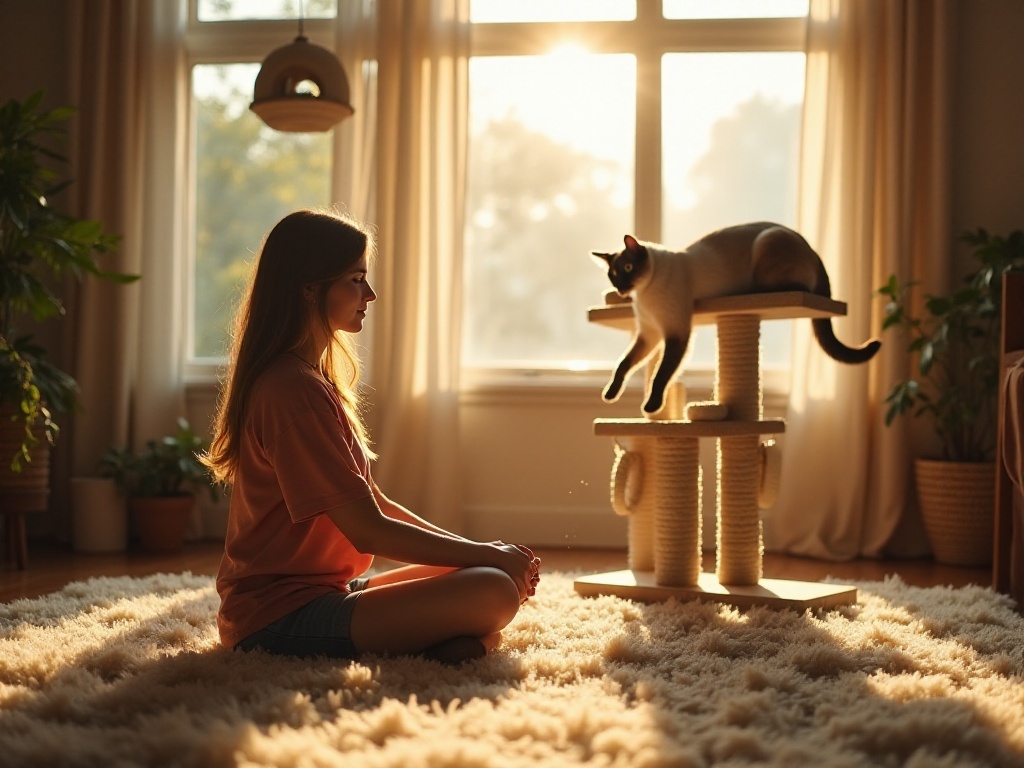
Daily Living
On this topic, I must mention my "painful lesson." When I first got a dog, I lived in a small studio apartment and thought since the space was small, the dog could just play around inside. The result was predictable - my shoes, sofa, and even wall corners all suffered damage. Later I realized that pets also need regular routines and appropriate exercise.
Now I take my dog for walks in the neighborhood every morning, usually for 30-60 minutes. This not only helps maintain their figure but more importantly releases excess energy. Sometimes on nice weekends, I take them to the dog park to play with other dogs. These group activities are very helpful for developing their social skills.
For cats, while they don't need outdoor walks, they still need adequate space and toys. I've set up a dedicated cat activity area at home with a cat tree, scratching posts, various wand toys, and balls. Every day after work, I spend 15-20 minutes playing and interacting with them. This not only keeps the cat active but also strengthens our bond.
Setting up sleeping areas is also important. Like humans, pets need their own private space. I've prepared a comfortable bed for the dog in a quiet corner of the living room. Cats prefer high places, so I put a soft cushion on the top level of the cat tree where they can rest and observe.
Speaking of environment, we should also mention hygiene. I now clean the litter box daily and do a thorough washing weekly. Floors and furniture are regularly disinfected, which not only keeps the house clean but also prevents some diseases.
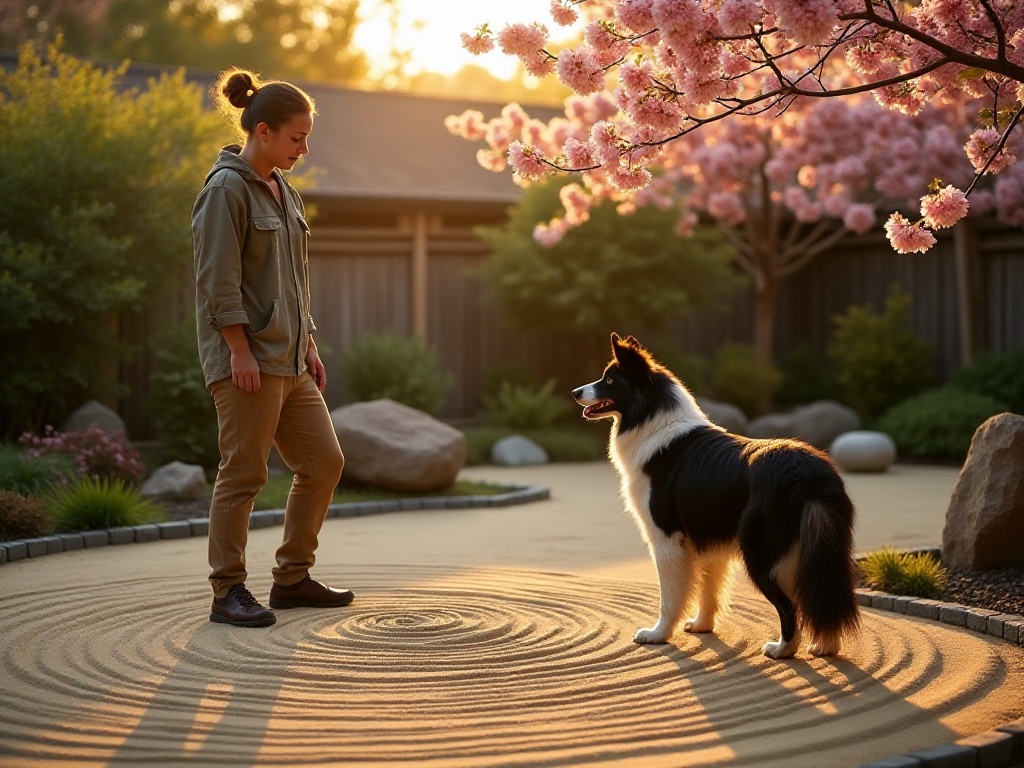
Seasonal Care
Every change of season really tests a pet owner's wisdom. Different seasons require different care measures - it's not as simple as just turning on the air conditioner or closing windows.
Summer is the most challenging season. My dog is particularly heat-sensitive and used to lie on the floor panting. Later I discovered several practical cooling tricks: first, prepare some chilled toys by refrigerating their favorite toys before play; second, make some cool treats - I blend chicken broth and fruits into a puree, then freeze it into ice cubes, which both cools them down and provides nutrition.
Bathing frequency should increase appropriately in summer, but be careful not to bathe them too often as it can damage their skin's protective layer. I usually decide bath times based on their activity level and sweating, roughly every two weeks. After bathing, it's especially important to dry their fur thoroughly, particularly inside the ears and between the paws, to prevent bacterial growth.
Pest prevention is also crucial in summer. I regularly use external parasite medication and avoid areas with lots of grass during walks. The home environment should also be regularly cleaned and disinfected to prevent flea and tick infestations.
In winter, keeping warm becomes the top priority. Although pets have fur, they still need extra protection in cold weather. I prepare several well-fitting clothes for them to wear when going out. This is especially important for short-haired or elderly pets.
Winter skin care is also crucial. Due to heating, indoor air tends to be dry, which can cause skin problems. I regularly use specialized skin care products, especially for paws and noses which easily crack. After each walk, I wipe their paws with warm water, which both cleans and prevents chapping.
Spring and fall are peak shedding seasons, requiring extra attention to grooming. I now brush them morning and evening using professional deshedding tools, which helps them complete their coat change more smoothly. It's also important to supplement with coat-nurturing nutrients like fish oil or B vitamins to help new fur grow healthier and shinier.
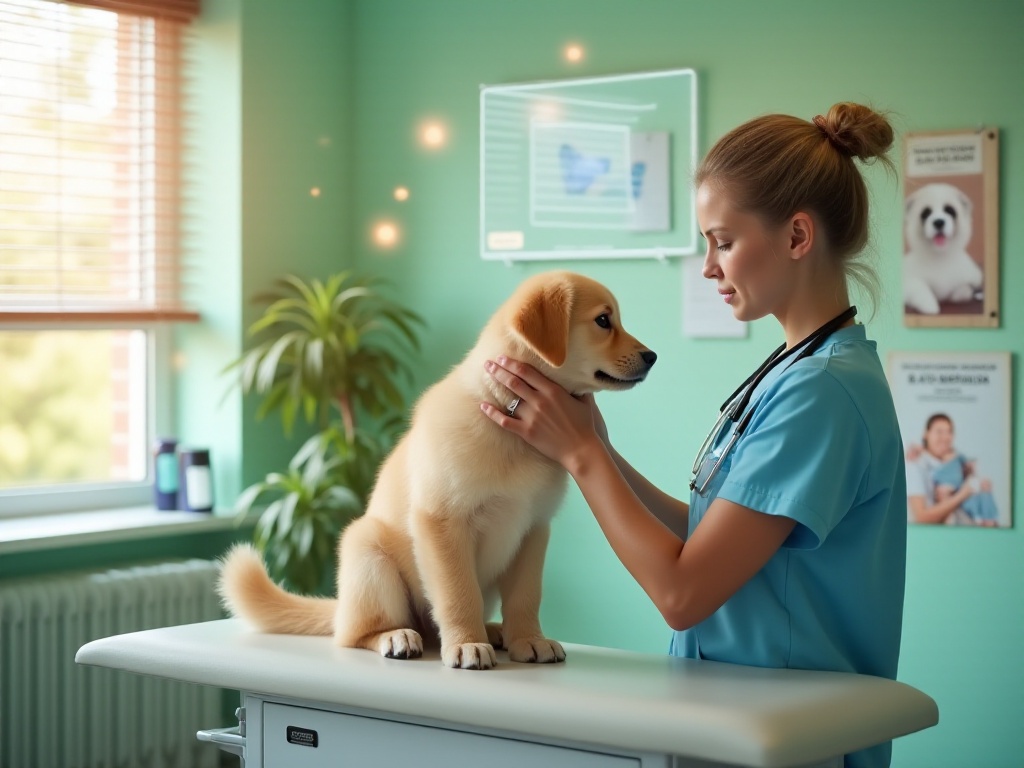
Concluding Thoughts
Looking back on these years of pet ownership, there have been many ups and downs. From initially being overwhelmed to now being competent, this process has taught me that keeping pets is not just a responsibility but a journey about love and growth.
Some say keeping pets is too troublesome, with too many things to worry about. But in my view, it's these daily moments that build deep bonds between us and our pets. Seeing them live healthily and happily makes all the effort worthwhile.
Actually, the hardest part of pet ownership isn't these specific care measures, but maintaining patience and love amid our busy lives. Though their lives are short, they provide us with the most sincere companionship and purest emotions.
So here's the question: What do you find most challenging about pet ownership? Is it the high medical costs? The inability to guarantee enough daily time with them? Or the feeling of helplessness when they're sick? Welcome to share your thoughts and experiences in the comments. Let's support each other and grow together on this journey of pet ownership.
Related articles


